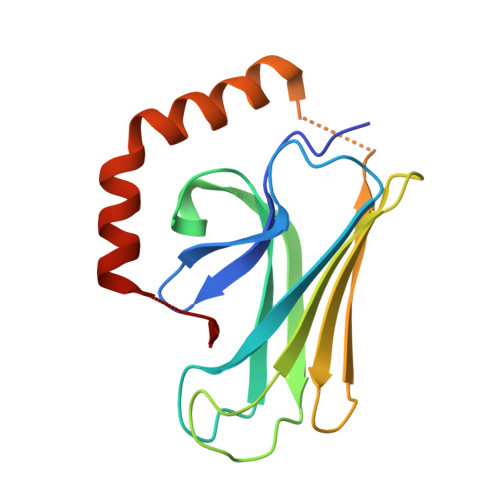The novolactone natural product disrupts the allosteric regulation of hsp70.
Hassan, A.Q., Kirby, C.A., Zhou, W., Schuhmann, T., Kityk, R., Kipp, D.R., Baird, J., Chen, J., Chen, Y., Chung, F., Hoepfner, D., Movva, N.R., Pagliarini, R., Petersen, F., Quinn, C., Quinn, D., Riedl, R., Schmitt, E.K., Schitter, A., Stams, T., Studer, C., Fortin, P.D., Mayer, M.P., Sadlish, H.(2015) Chem Biol 22: 87-97
- PubMed: 25544045
- DOI: https://doi.org/10.1016/j.chembiol.2014.11.007
- Primary Citation of Related Structures:
4WV5, 4WV7 - PubMed Abstract:
The highly conserved 70 kDa heat shock proteins (Hsp70) play an integral role in proteostasis such that dysregulation has been implicated in numerous diseases. Elucidating the precise role of Hsp70 family members in the cellular context, however, has been hampered by the redundancy and intricate regulation of the chaperone network, and relatively few selective and potent tools. We have characterized a natural product, novolactone, that targets cytosolic and ER-localized isoforms of Hsp70 through a highly conserved covalent interaction at the interface between the substrate-binding and ATPase domains. Biochemical and structural analyses indicate that novolactone disrupts interdomain communication by allosterically inducing a conformational change in the Hsp70 protein to block ATP-induced substrate release and inhibit refolding activities. Thus, novolactone is a valuable tool for exploring the requirements of Hsp70 chaperones in diverse cellular contexts.
- Novartis Institutes for BioMedical Research, 250 Massachusetts Avenue, Cambridge, MA 02139, USA.
Organizational Affiliation:

















